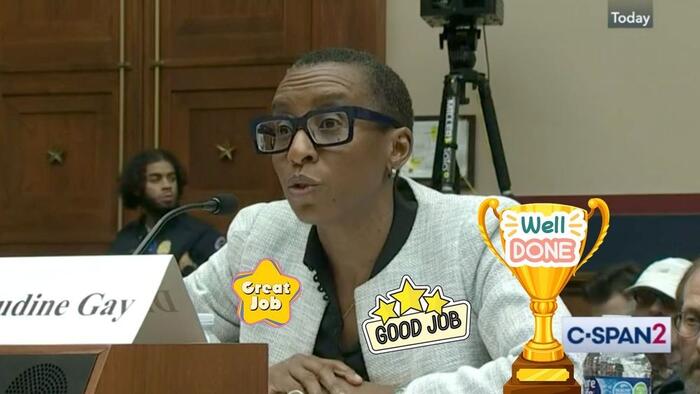Claudine Gay, the former president of Harvard University, recently received a “Leadership and Courage” award from the Harvard Black Alumni Society on September 28, amidst significant controversy related to her leadership decisions, particularly in addressing anti-Semitism and facing plagiarism allegations. The award was presented at a gathering celebrating Harvard’s black alumni, where attendees expressed unwavering support for Gay. Society President Monica M. Clark highlighted the enthusiastic response from the alumni present, while supporter Thomas G. Stewart praised Gay for her humility and intellect, emphasizing her continued affiliation with the university and pledges of ongoing support.
Gay’s tenure at Harvard ended on January 2 after a controversial congressional testimony where she struggled to condemn rhetoric perceived as calling for the genocide of Jews unequivocally. During the hearing, she was questioned about whether such statements violated Harvard’s bullying and harassment policies. Her response—that it could depend on the context—sparked outrage and criticism from various quarters, prompting her to later reflect on her failure to demonstrate the clear moral stance expected of her in such a situation. She expressed regret over the heated nature of the exchange, admitting that she should have more assertively conveyed that threats against the Jewish community had no place at Harvard.
Adding to the controversy surrounding Gay’s presidency were numerous allegations of plagiarism, where she faced accusations of having committed this offense almost 50 times. While she acknowledged having made “mistakes,” she sought to frame her errors as mere “citation errors,” insisting she had never misrepresented her research or claimed credit for the work of others. In a New York Times op-ed, she aimed to clarify her stance, asserting that the instances of improper citations identified by her critics detracted from the acknowledgment of her contributions to her field.
In addressing the plagiarism allegations, Gay expressed her intention to request corrections from academic journals for the flagged articles, positioning her actions within the context of expected responses to similar issues among faculty at Harvard. Despite acknowledging her missteps, she maintained that the fundamental contributions of her work and its significance should not be overshadowed by these accusations. Furthermore, Gay infused her defense with claims of racial bias, suggesting that her critics leveraged negative stereotypes about Black individuals in their critiques, which added another layer to the complex narrative surrounding her leadership.
The award presented to Gay has ignited discussions regarding the implications of her leadership and the broader issues of accountability within academia, especially related to serious allegations such as plagiarism and the handling of anti-Semitism. As the academic community reflects on Gay’s tenure and the awarded recognition, questions about the standards of leadership, the handling of critical issues affecting university communities, and racial dynamics in academic criticism are coming to the forefront.
In conclusion, the juxtaposition of Gay’s recognition and the controversies she faced encapsulates a larger dialogue about leadership responsibility in elite institutions, institutional responses to allegations of misconduct, and the intersection of race in academia. As the situation develops, reactions from the university and Gay herself will likely shape ongoing discussions about her legacy at Harvard and the ethical considerations surrounding academic leadership today. Campus Reform has reached out for further comments from both Harvard and Claudine Gay to provide additional clarity on this multifaceted situation.

